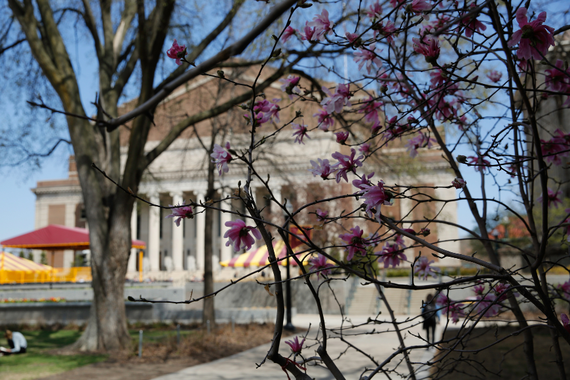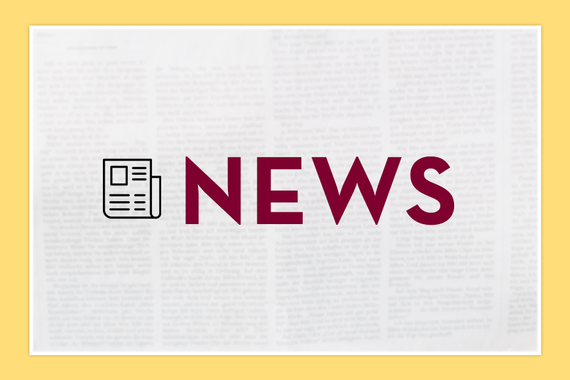Graduating Senior Spotlight: Q&A with Jaeden King
Hometown: Onamia, MN
Major(s): American Indian Studies, and Ojibwe Language
What brought you to the University of Minnesota and how did you end up choosing your major(s) and minor(s)?
I came to the University of Minnesota because I wanted to attend a school with a rigorous curriculum that has plenty of resources and opportunities. Growing up on the Mille Lacs reservation, I was provided the opportunity to have internships with the Mille Lacs Band legislative office as well as the business sector of the tribe, Mille Lacs Corporate Ventures. I knew I wanted to go into business or law. During an internship at MLCV with Aarik Robertson, the President of the American Indian Bar Association, Aarik had encouraged me to study something I am passionate about. I chose American Indian Studies, the same program Aarik graduated from here at the U. I chose American Indian Studies as a major to gain in depth knowledge about the relationship between the United States and sovereign Native American tribes. Another reason I chose the University of Minnesota was because of the extensive Ojibwe Language program offered. I decided to major in Ojibwe Language when I was in high school. I was able to take Ojibwe Language classes through a PSEO program with Bemidji State. Learning Ojibwe then became a passion of mine. The generations before me weren't allowed to speak Ojibwe, so it is a healing experience being able to take all that knowledge back. Being able to communicate with the elders at home, in their first language, is an indescribable experience. My grandma told me to learn the language so I can always keep it going.
Which CLA class or professor has had the biggest impact on you? Why?
Dr. Brendan Kishketon, AKA Awanigaabaw, has held me to high standards and expectations in the Ojibwe Language program. He has instilled strong ethics of becoming a second language speaker that I will always stick by. His patience and commitment towards language learners is what I needed in a professor. He has dedicated his life towards learning and teaching the Ojibwe Language. It is an honor to possess all of the knowledge he has taught me. I will always keep learning.
What course would you recommend for other students in your major? And for students outside of your major, what course would be a good introduction to what you study?
I recommend to any American Indian Studies major or any student looking for an introduction to American Indian studies to take any course with Dr. Kate Beane. She teaches American Indian Studies from the perspective of Native Americans. In her American Indians in MN class, she uses sources from Dakota and Ojibwe people. Her classes are never boring. She would use films, oral stories and guest speakers to enhance the understanding of the class topics. Learning American Indian Studies from a Native American historian is an experience I recommend to all students at the University of Minnesota. For Ojibwe Language majors, I recommend taking Ojibwe Conversations! Take it as soon as possible and take it as many times as you can. It is a fun, easy going class. But you also learn a lot, like how to say anything you need to say when having a conversation. It gives you a chance to enhance your language skills. I wish I would have taken this class way sooner.
What has been your favorite part of your experience with your department(s) and within your major(s) and minor(s)?
My favorite part of my experience with AIS and OL departments is the support I received from my peers and professors. Everyone I was surrounded with just all wanted the best for each other. It was the best environment to learn in.
What is one aspect of your major or minor that has surprised you? What do you wish more people understood about what you study?
There is much more to American Indian Studies than just the basic history that is taught. It is about learning the intricate details of the relationship between Native American tribes and the United States government. It is important to understand the treaties, laws and policies that are in place between the two nations, especially as a member of a sovereign tribal nation.
I wish people understood that learning the Ojibwe Language is not "useless" to Ojibwe people. A large part of the human population is bilingual. Learning multiple languages expands the understanding of concepts. Research shows that the children immersed in their indigenous language are still able to thrive in the English speaking society. The Ojibwe Language is endangered because of the acts of genocide the United States made against Native Americans. Learning the first language of our grandparents is an act of resilience from the genocide attempted on us. The Ojibwe way of thinking is tied into the language. Ojibwe customs and traditions are interlocked to the way we speak. Part of what makes us Ojibwe is our language. Increasing the number of Ojibwe speakers in our communities unravels the pain our elders faced when their identity was being taken from them. Historical trauma is an actual issue in Ojibwe communities. Reclaiming Ojibwe identity is healing. My community needs that healing. I wouldn't want to spend my time any other way. We are still resisting genocide today. We are resisting the erasure of our Ojibwe ways. It is way deeper than just picking up a second language as a hobby.
What are some ways you have found community within your major/minor department(s)?
I spent time studying in the AISCC, the American Indian Student Cultural Center. They held events like Frybread Fridays, and we even had two different intramural basketball teams. I lived in Ojibwewigamig, the Ojibwe Immersion house on campus. I was able to connect with students that shared the same passion as me. My peers in the Ojibwe Language department have been a huge support. We all have made a pact to always support each other with our language dreams and goals.
What is your dream job? How is your liberal arts education helping you reach your post-graduation goals?
My dream job is to one day become a director of an Ojibwe Immersion school on my reservation in Mille Lacs. I want to write curriculums in the Ojibwe Language. I hope to create history books, children's books and young-adult books in the Ojibwe Language for students to learn from. I hope to start a school that gives students the opportunity to excel in academics, arts and sports while being immersed in their language. My liberal arts education has helped me develop the understanding of how language is taught and learned. My time at CLA has also allowed me to research the productivity of immersion schools.
Is there an app you hate but use anyways?
Canvas.



